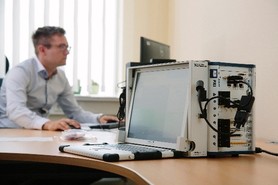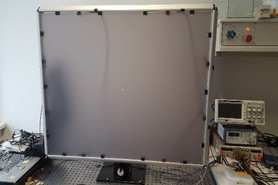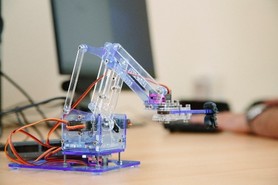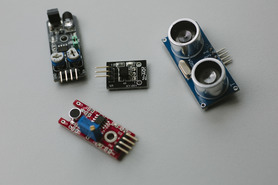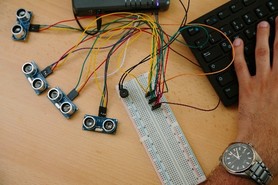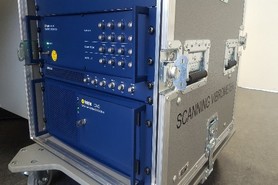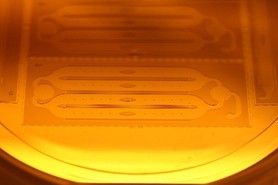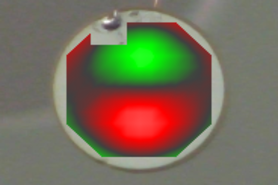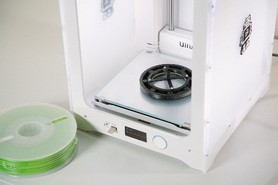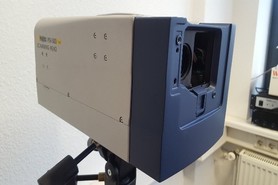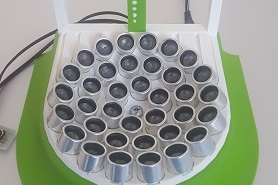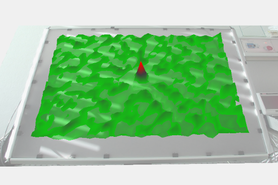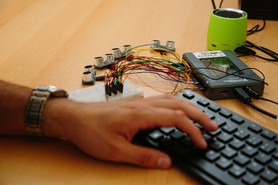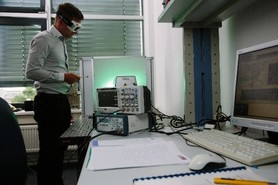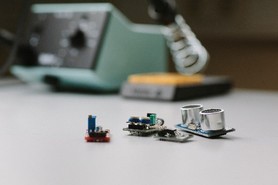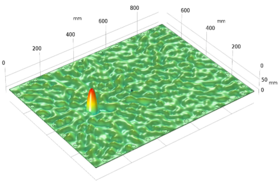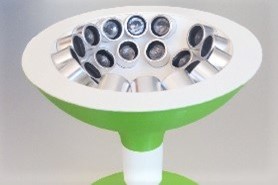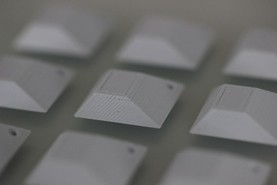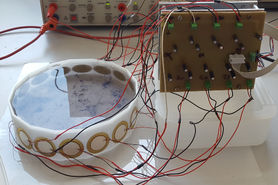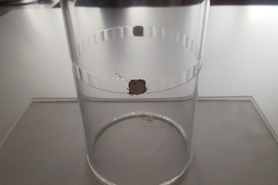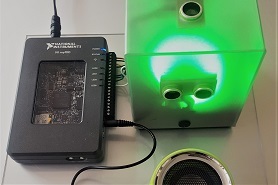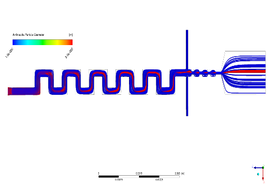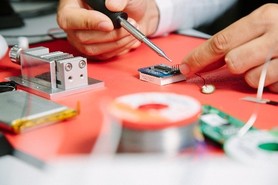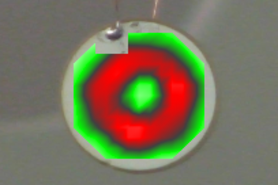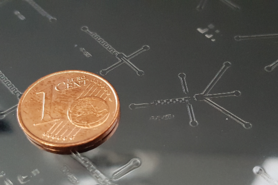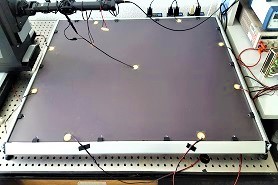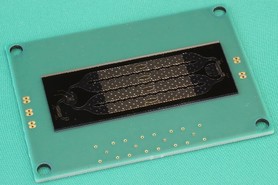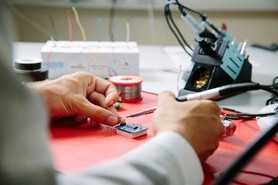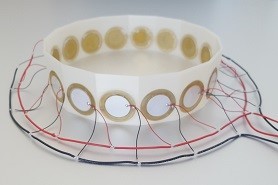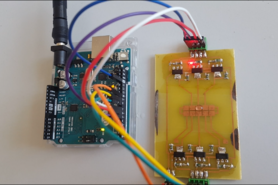Research
human-technology interaction
- development of haptic (tactile) actuators based on structural vibrations in plates
- analysis and synthesis of temporally and spatially defined deflection using time reversal of elastic waves
- development of a comprehensive understanding of complex transient sound fields in homogeneous and heterogeneous media, of transducer behaviour and evaluation of reflection and scattering effects
- analysis of mode conversion phenomena in the propagation medium
- utilization for multi-touch interaction systems
- approaches to process optimization and improved spatial-temporal focusing of acoustic energy by coupling of a chaotic cavity
sensor integration into cost-effective, plastic-based fluidic platforms
- development of strategies for the integration of sensor and measurement techniques in "disposable"-based fluid analysis
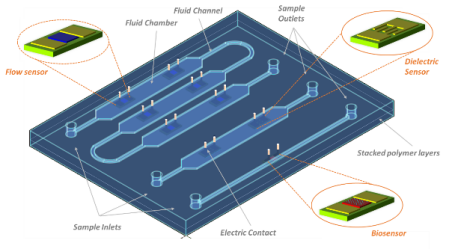
- design and construction of (micro-)fluidic disposable test carriers with integrated or modularly supplementable analysis technology, for example with 3D printing (filament-based) or impression procedures (soft lithography)
- microcontroller-based data acquisition and processing
- coupling of measurement technology and established "end devices" (smartphones, tablets) for visualization, data interpretation & diagnosis at the "point-of-care" as well as telemedical further processing (individualized medicine)
microfluidic measuring cells for inline analysis of fluids
- development of silicon- and polymer-based microfluidic functional elements for
- transport and mixing of liquid phases
- manipulation/ separation of particulate phases in liquid matrix
- analysis of quantitative fluid characteristics
- application-specific development of lab-on-chip systems with customizedsensor/actuator functionalityiIntegration of impedance spectroscopic, optical, electrochemical measuring principles, etc.
.jpg)
.png)
Measurement systems for microresonant sensors
- mass-sensitive normal-field excited oscillating quartz as chemical, physical or biological sensor (quartz crystal microbalance QCM)
- synthesis, characterization and testing of special sensor and functional layers
- online measurement of the density-viscosity product
- demonstration of the kinetics of biological/chemical interactions and interfacial phenomena
- lateral field excited oscillating quartz crystals as alternative to standard configuration QCM with combined mechanical (density-viscosity) and dielectric (conductivity, permittivity) sensitivity
- identification and evaluation of the different resonance modes under variable loading with an analyte (experimental, numerical)
- characterization of the electromechanical transmission behavior of the sensors during interaction with a medium
- investigation of the influence of different electrode designs on resonance behavior
- combination of both sensor approaches (normal field/lateral field excited) in one sensor device for simultaneous characterization of liquids
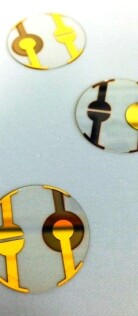
- development of specific hardware and software systems for simultaneous, multi-channel control and analysis of individual resonators
- scaling and miniaturization in array structures
- phononic crystals (PnC): periodic acoustic structures with specific spatial distribution of physical properties
- theoretical and experimental analysis of the resonant behaviour of an acoustically excited periodic arrangement of cavities (= PnC) with entrapped fluid
- quantification of fluid properties based on resonant behavior
- investigation of questions of miniaturization and integration into fluidic sensor platforms (keyword "built-in sensor", lab-on-chip)
